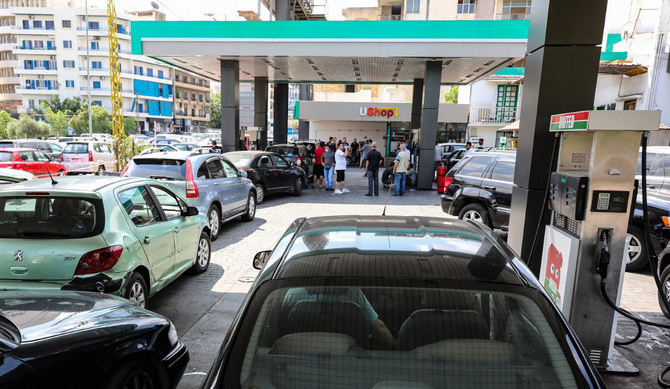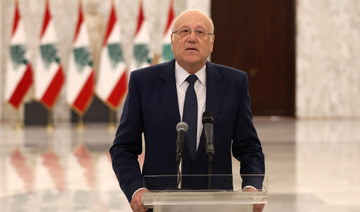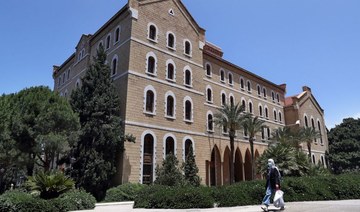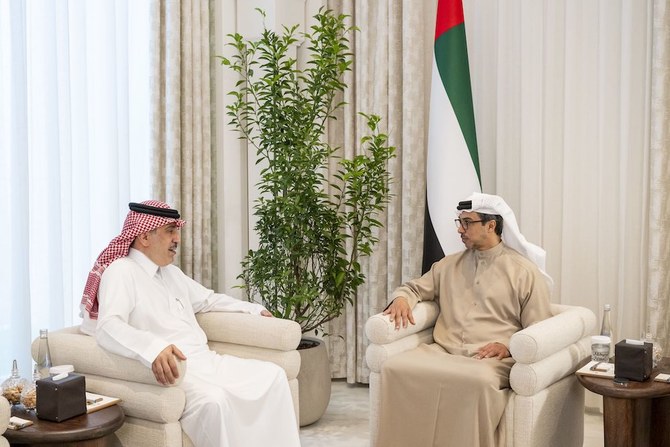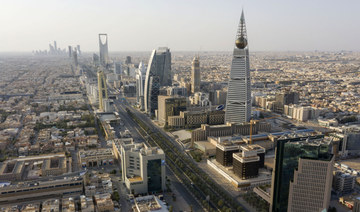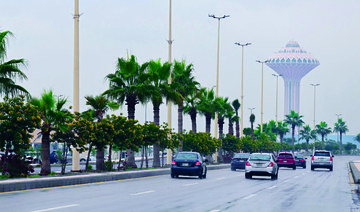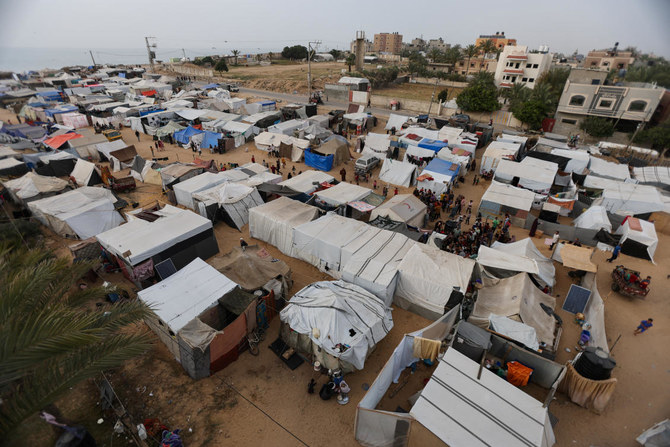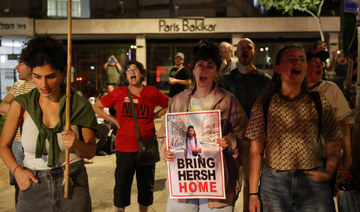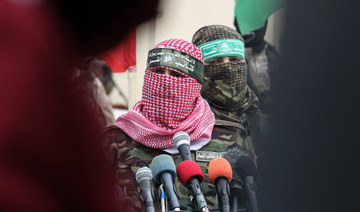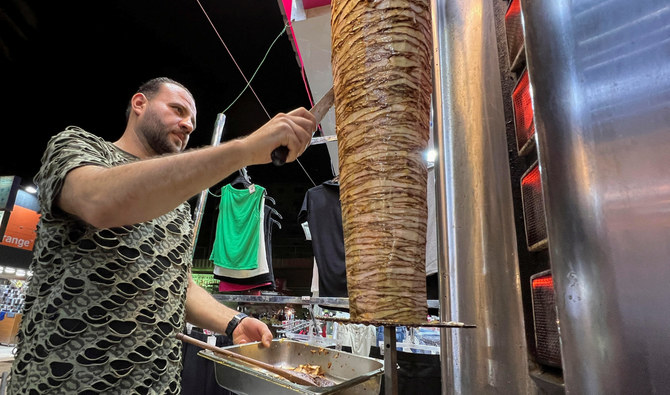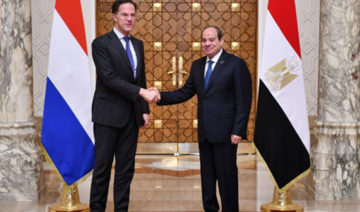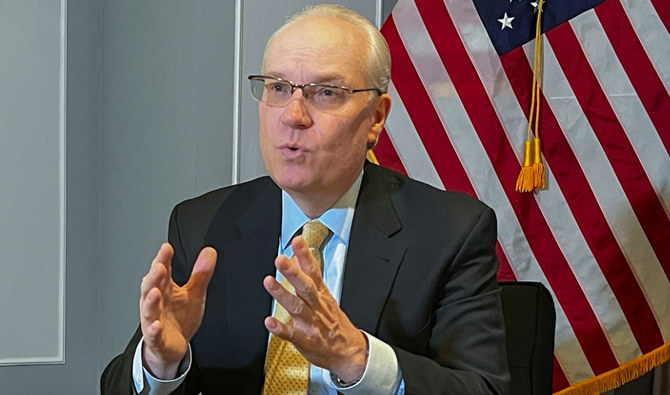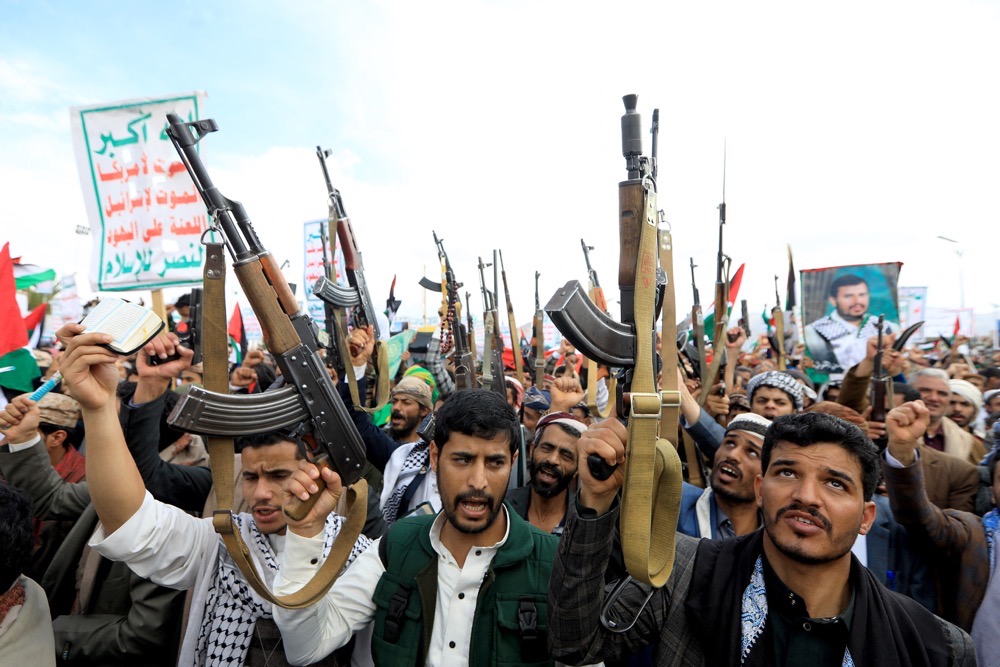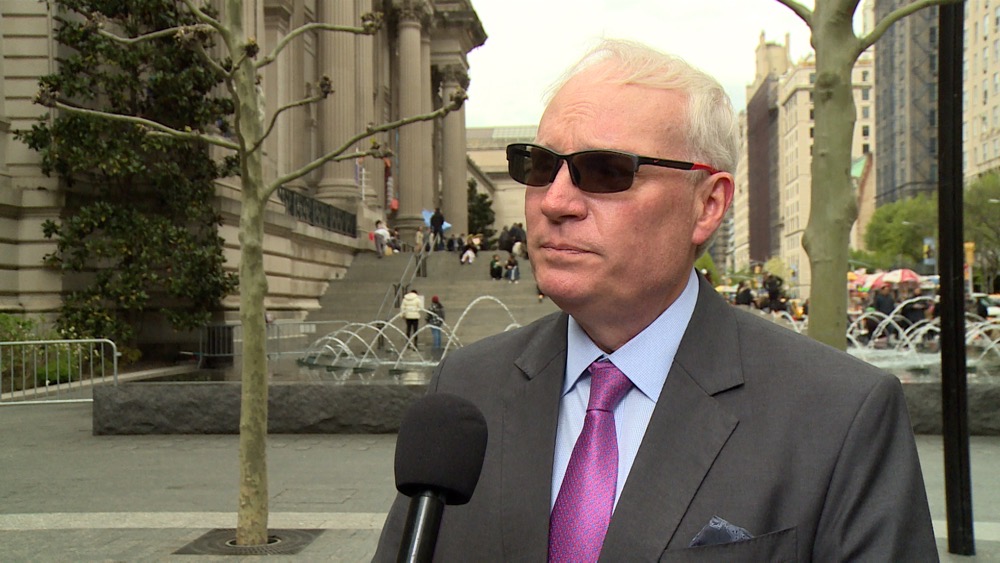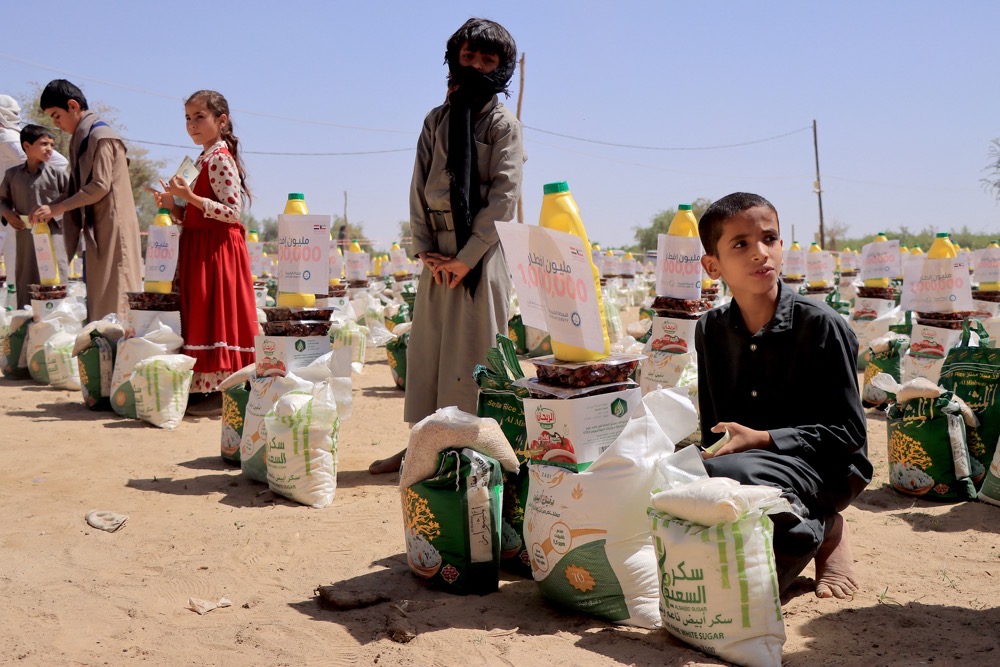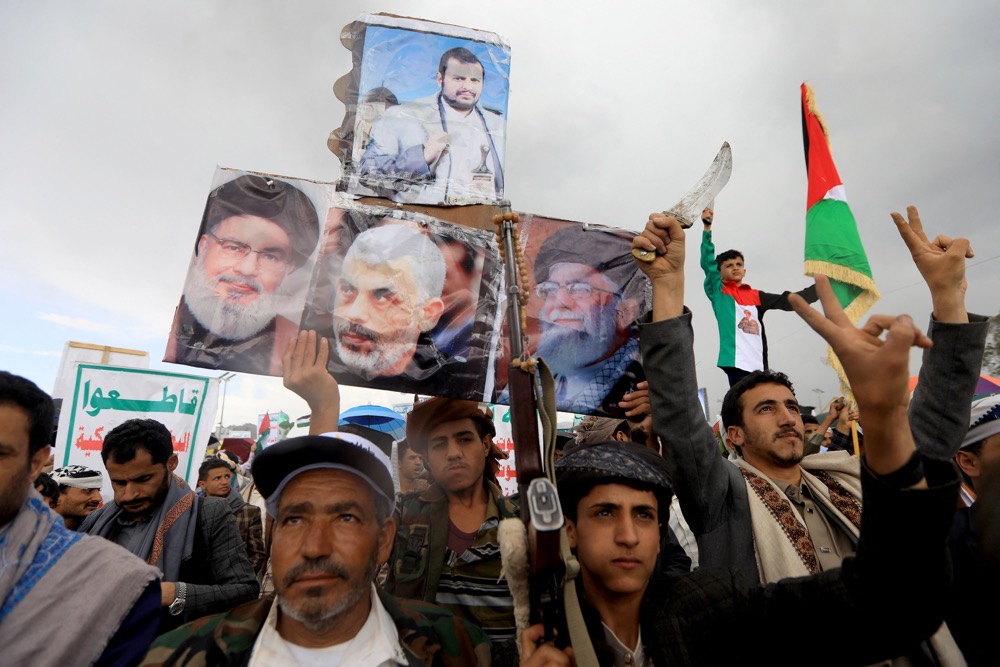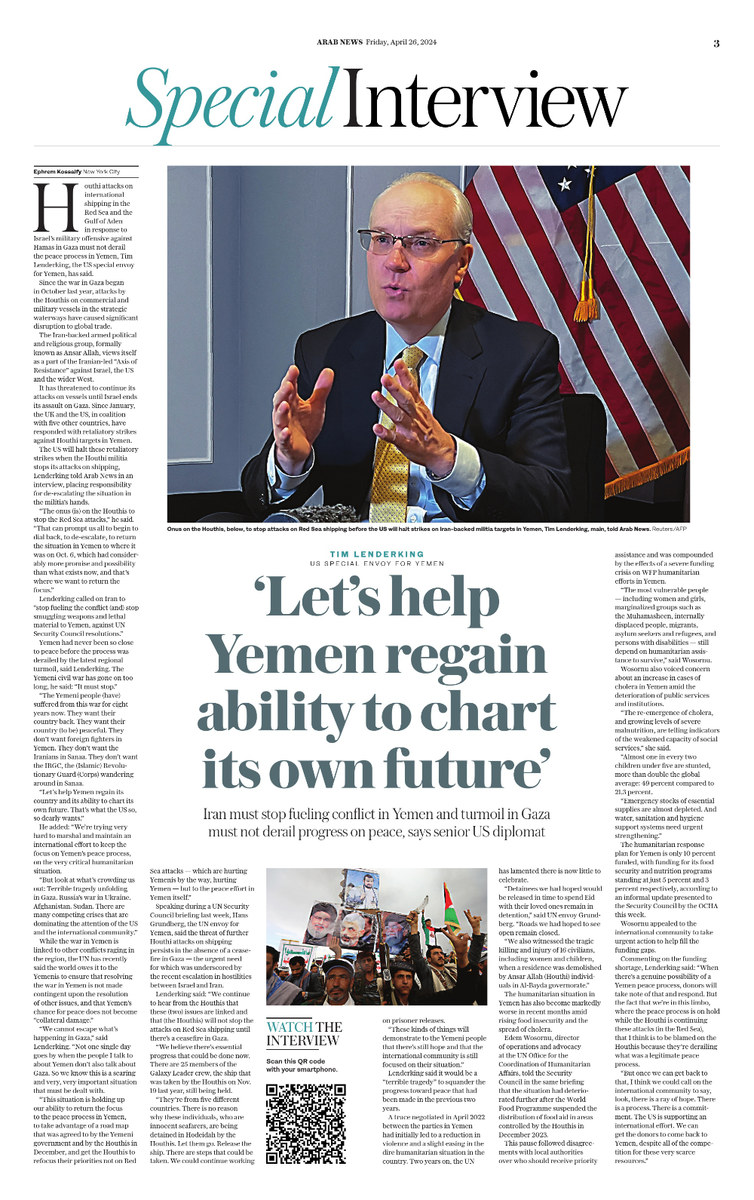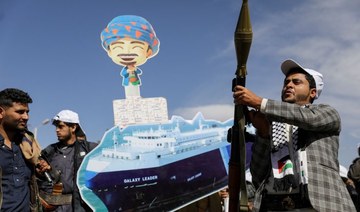DUBAI: Time was when the streets of Beirut throbbed with life and commerce once dusk fell. But nowadays they become ghosts of their former selves as soon as the sun sets. The reason: There is no money in the state’s coffers to buy fuel to operate Lebanon’s power plants.
Private generator operators too have run out of supplies, with fuel becoming the latest casualty of a complex web of crises that have drained Lebanon’s foreign currency reserves.
Last week, the price of fuel in Lebanon rose for the second time in less than two months. The government lifted subsidies for gasoline and diesel in an effort to ease shortages, which led to a nearly 66 percent spike in prices since the last hike in late June.
Lebanese people were already struggling to keep up with expenses given that the pound has lost nearly 90 percent of its value (since mass protests kicked off in late 2019) while salaries have stagnated.
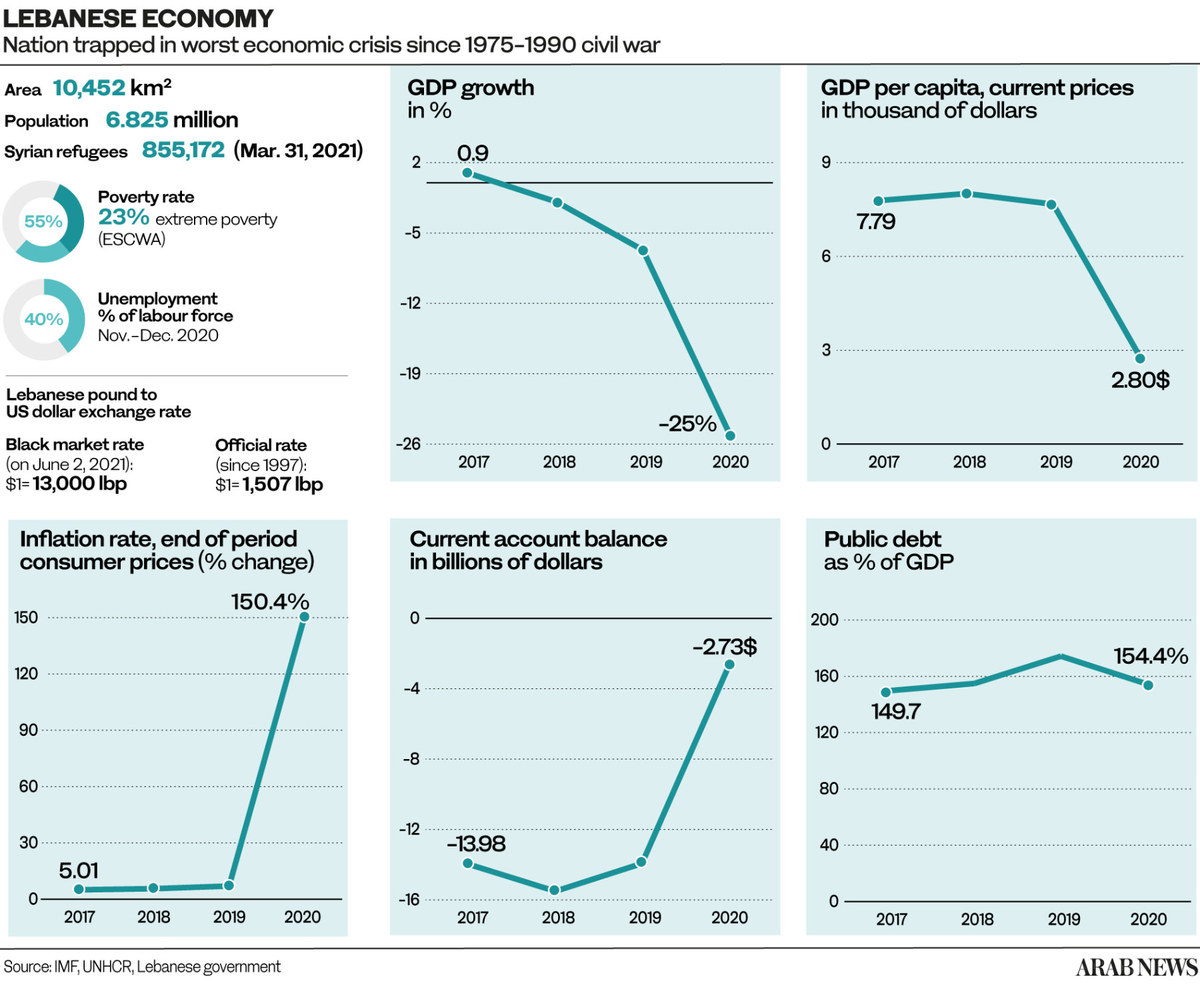
Mustafa Naboulsi lives in Qalamoun, a town in the north of Lebanon, and has been working as a firefighter for 11 years. On Aug. 23, he sent his family to live in France owing to the country’s worsening economic situation.
“Sometimes we have to even sleep in the car while waiting for the fuel so that we can wake up in the morning and fill up the tank. A lot of times we have spent two to three hours in queues, only to be told that the fuel was finished and that we should return tomorrow,” Naboulsi told Arab News.
It has been over 10 days since Khaled Zakaria last filled his tank with gasoline. To do so, he had to travel for nearly 50 km from Tripoli to Byblos and stand in line for over an hour.
The high demand for gasoline coupled with its unavailability has predictably given rise to a black market, where the commodity can be bought for seven to 10 times more than its official price. Zakaria said he refuses to purchase gasoline this way as he does not want to encourage hoarding and corruption, which in his view can only make a bad situation worse.
Naboulsi, the firefighter, also treats burn injuries, but the restrictions on his mobility have left him feeling helpless.
“Sometimes I get called into areas that are outside my town. These are people that are in pain and I would love to help them, but I can’t even reach them,” he told Arab News.
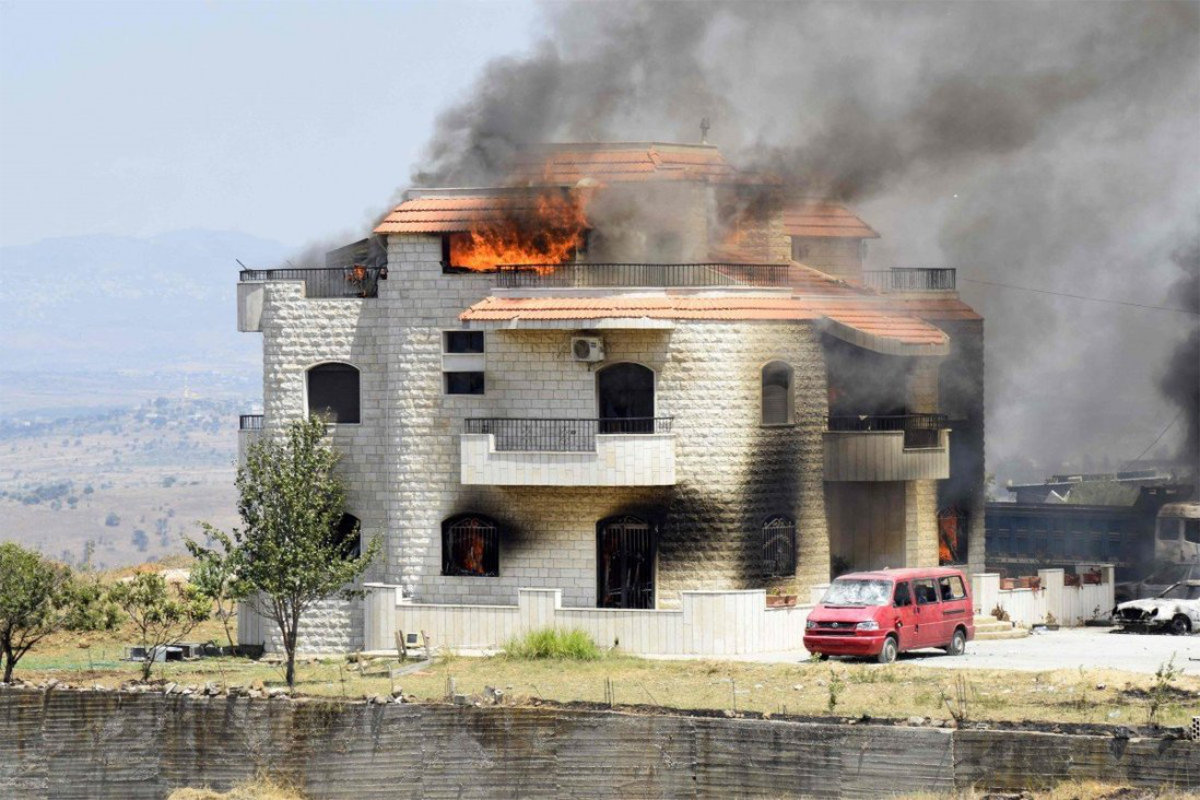
Fire devours a building close to where a fuel tank exploded in Lebanon's northern region of Akkar on August 15, 2021. (AFP file photo)
On the morning of Aug. 15, a gasoline-tanker explosion in Akkar left 28 people dead and nearly 80 injured. The incident prompted neighboring countries to step in to provide aid since Lebanon is also in the midst of a medical crisis.
“Especially after what happened in Akkar, I have no words to describe the pain,” Naboulsi told Arab News. “It’s a very hard feeling. You feel like you are not doing enough even though the situation is out of your control.”
At the beginning of August, Riad Salameh, Lebanon’s Central Bank governor, blamed local traders for fuel shortages.
“It’s unacceptable that we import $820 million worth of fuel and not get to see diesel fuel, gasoline or electricity. This, not the positions adopted by us, is humiliation in itself against the Lebanese,” he told a local radio station.
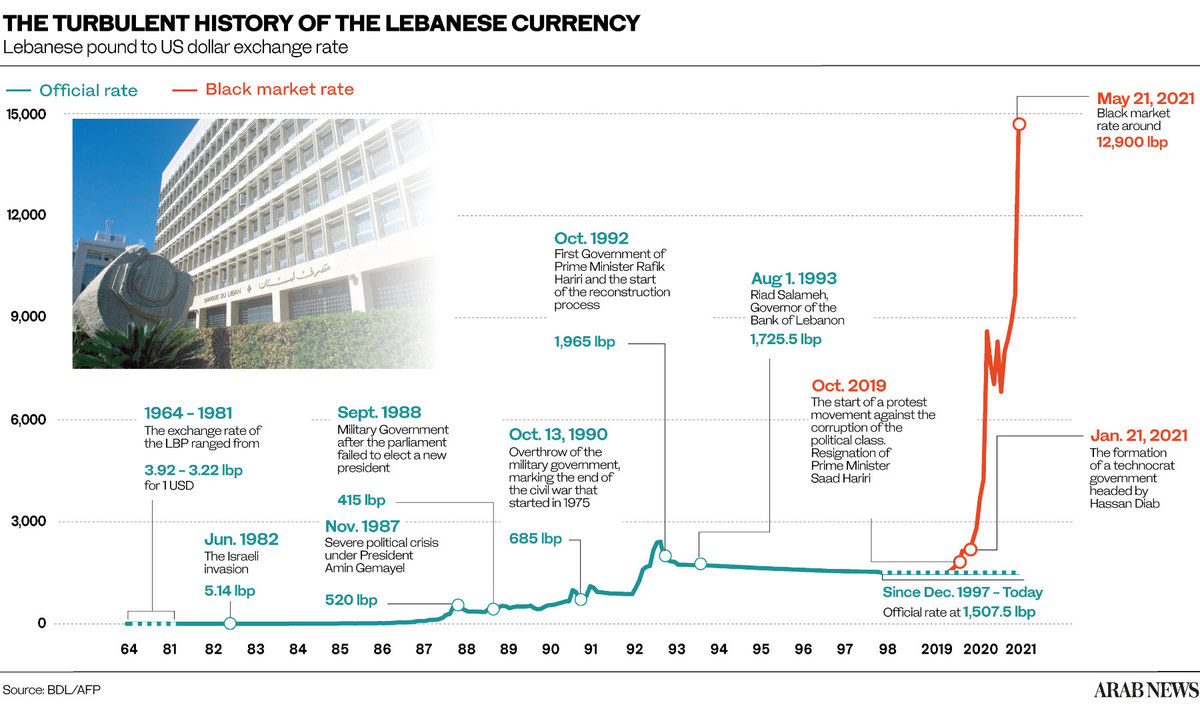
The imported fuel was expected to cover the country’s needs for three months. Instead, it did not last for even one month.
Bachar Elhalabi, senior Middle East and North Africa analyst at ClipperData, says the Lebanese political system of “muhasasa,” or the sectarian division of ministerial spoils among 18 religious sects, has allowed each leader to grab “a piece of the pie” for themselves.
“Whether it is funding allocations, projects, contracts, etc. Unfortunately, the energy sector is part of that ‘muhasasa.’ In fact, it might be one of the biggest golden geese for sectarian leaders,” he said.
While the caretaker government struggles to keep mass hunger and a total economic collapse at bay, one political faction has found an opportunity to make a grandstand play.
The leader of the Iran-backed Hezbollah, Hassan Nasrallah, said on Friday that he had decided to arrange for a third shipment of Iranian oil.
“We have agreed to start loading a third vessel,” Reuters news agency quoted Nasrallah as saying. “The coming days will prove those doubtful about the shipments arriving with fuel wrong ... and our words will be clear when the first vessel reaches Lebanon.”

Hezbollah leader Massahn Nasrallah caused an uproar when he announced that his group has ordered oil from Iran, a move that could place Lebanon under US economic sanctions. (Reuters file photo)
Earlier last week, Nasrallah announced that the first vessel with Iranian oil had set sail to Lebanon.
Some analysts have warned that importation of Iranian fuel could expose Lebanon to something it cannot afford: US sanctions. Nevertheless, Elhalabi believes Nasrallah is serious because, regardless of whether the vessels make it to Lebanon, the move still serves Hezbollah’s interests.
“The country and the various stakeholders are in a bind. And that includes opponents of Nasrallah. If the tanker arrives at a Lebanese port, the staff are going to look really bad” if they refuse to offload the fuel, Elhalabi said.
On the one hand, if Iranian oil ends up reaching Lebanon, Nasrallah will have succeeded in presenting himself as someone capable yet separate from the government. On the other hand, if the international community — more specifically the US — hits Lebanon with sanctions for importing Iranian oil, Nasrallah will reap the resultant political rewards, Elhalabi said.
Since Lebanon was gripped by economic and financial crises in late 2019, the government has continued to subsidize wheat, gas, fuel, food and other essential items at lower-than market rates.
“Fuel shortages can be traced back to the inefficiency of the decades-old subsidy program,” Jean Tawile, an economist who has advised the government in the past, told Arab News.
“This paved the way for many cases of abuse such as hoarding, stockpiling and smuggling.”
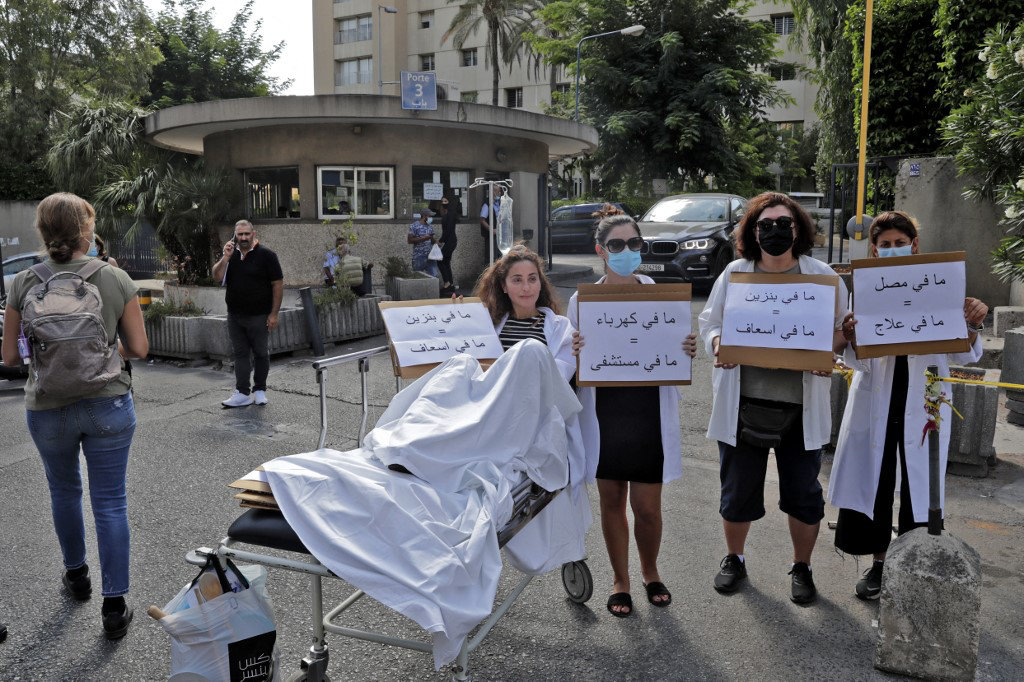
Lebanese pharmacy workers demonstrate in the Achrafieh district of Beirut on August 16, 2021, with their placards saying "no gasoline = no ambulance" and "no electricity = no hospital" and "no vaccine = no treatment". (AFP)
Most of Lebanon’s subsidized goods are being smuggled into Syria “as prices have skyrocketed there since the outbreak of war,” he said.
Historical data shows that Lebanon imported 5.7 million tons of fuel in 2011, Tawile said. However, by the end of 2012, after the Syrian civil war broke out, the figure shot up to 7.6 million tons.
“So essentially, Lebanese depositors were subsidizing the fuel needs of Syria,” he said.
According to Tawile, the removal of subsidies will eliminate discrepancies in the two countries’ fuel prices and put an end to smuggling of the commodity.
Fuel hoarding will also decrease as distributors will have no reason to stockpile the commodity, something they regularly do in anticipation of price hikes.
Additionally, as Mohamed Ramady, a former senior banker and professor of finance and economics at King Fahd University of Petroleum and Minerals, points out, Lebanon has been under pressure from international lenders to lift subsidies.
“Lebanon is facing a difficult situation. This decision to reduce the subsidies on fuel is not politically driven. It is economically driven,” Ramady told Arab News.
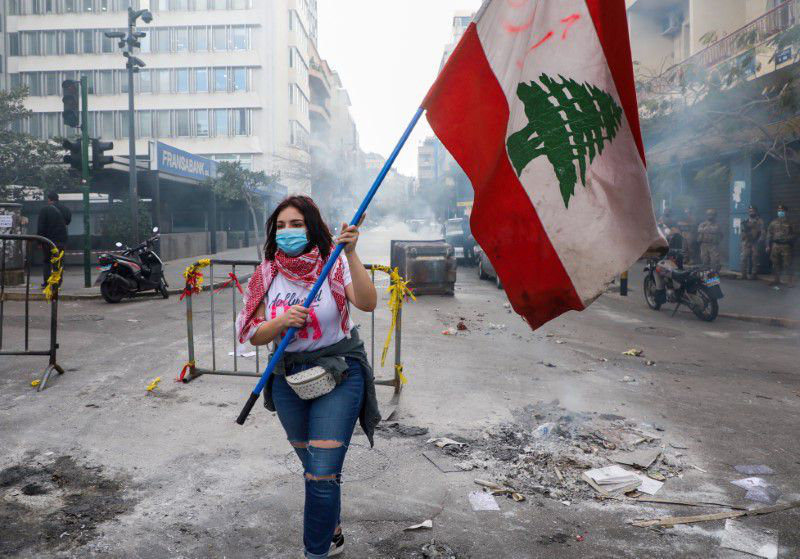
A demonstrator carries a national flag along a blocked road during a protest against the mounting economic hardships near the Central Bank building in Beirut on March 16, 2021. (REUTERS/File Photo)
Ramady said reducing subsidies is also a way for the government to achieve a measure of fiscal prudence.
“Custom duties are not there. The trade situation is fragile as Lebanon is not exporting vegetables and fruits like before. Tourism revenue has dropped drastically. In other words, Lebanon’s sources of income have narrowed,” he said.
Tawile says the government can cushion the impact of decreased subsidies on the people by implementing a social safety net mechanism, for instance by providing the poorest with direct cash payments.
The caretaker government did propose in May to provide ration cards to the most vulnerable families as a replacement for subsidies. The $556 million scheme was expected to benefit more than 500,000 needy families.
However, as with so many other programs in Lebanon, the absence of a clear funding source has kept the plan in the deep freeze since then.





